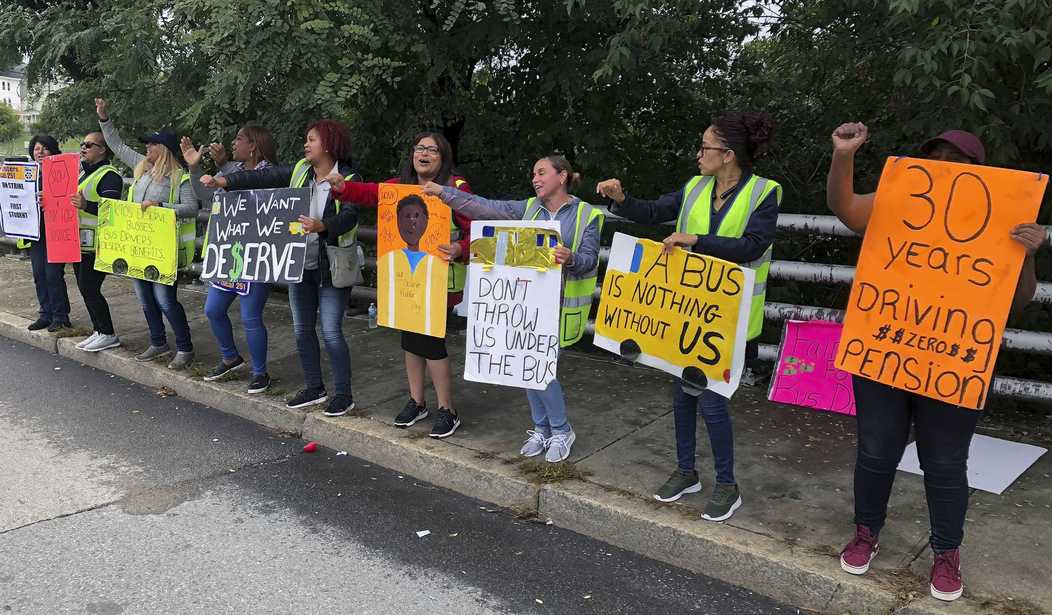CNN recently dropped a bombshell report regarding Vice President Kamala Harris’s run for the White House. According to Harry Enten, their senior data reporter, Harris is headed toward “the worst Democratic performance with union voters in a generation.”
For anyone connected to the union community, this revelation probably feels less like a surprise and more like a long-overdue confirmation of the obvious.
The Democratic Party has long marketed itself as the champion of working-class Americans, but now their cozy, behind-the-scenes dealings with the billionaire elite have finally come into full view.
The chasm between union rank-and-file members and their leadership has never been more pronounced.
A stark example of this divide came from Sean O’Brien, the top brass at the powerful Teamsters Union. O’Brien’s own polling revealed that nearly 60 percent of his members supported Donald Trump in the presidential race. And yet, despite this overwhelming mandate from the people he supposedly represents, O’Brien simply couldn’t bring himself to back his members’ choice.
Instead, he announced that, for the first time since 1996, the union would remain neutral and not make an endorsement.
Even during labor strikes, the gap between union elites and everyday workers becomes glaring.
Take Washington State, where the International Association of Machinists and Aerospace Workers (IAM), who had previously given their full-throated endorsement to Kamala Harris, went on strike against Boeing two weeks ago. This strike came despite Boeing’s offer of a 30% pay raise, a base salary of $110,000 a year, and a signing bonus to boot.
Recommended
And where were IAM’s leadership during this showdown? Well, some of their “best and brightest” from District 751 weren’t at the negotiating table — they were lounging on the beaches of Puerto Vallarta, Mexico, enjoying beers under the sun, and happily posting photos of their escapades online while their members faced the chaos of a heated strike.
It’s hard to imagine a picture more at odds with the traditional image of labor leaders fighting for workers’ rights. But that’s the current reality.
The very people claiming to stand up for the interests of IAM members are looking more out of touch than ever. They rejected a deal that most Americans would jump at, all while using their bloated union salaries to fund a tropical getaway during their so-called “battle against corporate exploitation.”
And who’s backing this elite class of union bosses? Progressive figures like Sen. Bernie Sanders. Is it any wonder that union members are now turning their backs on the political left?
Unions have a long and noble history in America, and rightfully so. They’ve fought hard for the 40-hour workweek, fair pay for overtime, workplace safety, and protections against exploitation. But modern-day unions, particularly the IAM, seem more interested in political maneuvering than in truly advocating for their members’ welfare.
This disconnection mirrors what’s happening within the Democratic Party itself: leadership has drifted far from the economic struggles and political concerns of ordinary working Americans.
Successful labor negotiations require give-and-take and a mutual understanding. Unfortunately, too many union leaders seem more interested in padding their already hefty wallets than in defending the interests of their members. The Democratic Party is all too happy to align itself with these self-serving union executives.
If unions continue down this path, refusing to adapt to the needs of today’s workers, they risk losing their influence — and, more importantly, the trust of the very people they claim to represent.
Union leaders must refocus on serving their members before they fade into irrelevance.
Julio Rivera is a business and political strategist, cybersecurity researcher, founder of ItFunk.Org, and a political commentator and columnist. His writing, which is focused on cybersecurity and politics, is regularly published by many of the largest news organizations in the world.

























Join the conversation as a VIP Member